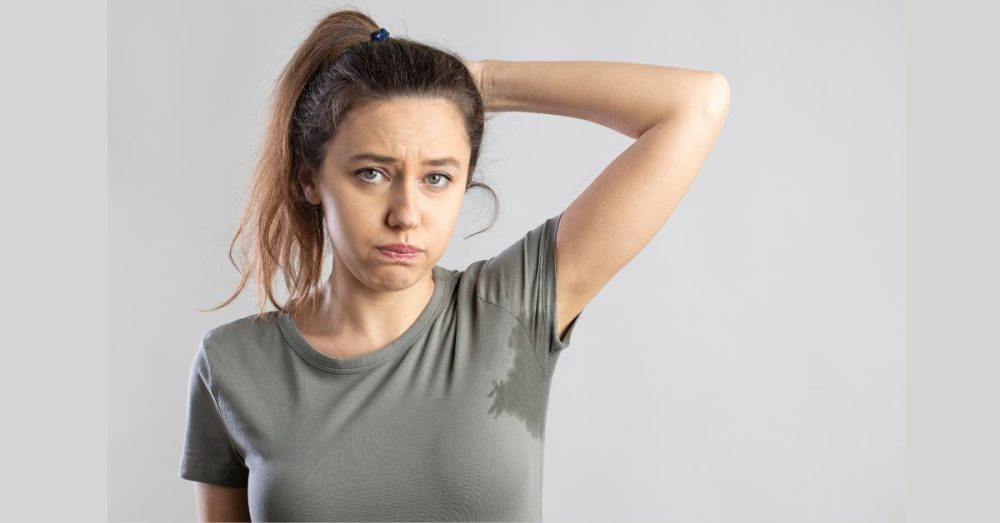During the summer in Texas, the scorching heat brings more than just refreshing sweet tea and opportunities for a swim. The relentless high temperatures can lead to excessive perspiration, leaving its mark on the clothes we wear.
We live in a society where everyone is already overly sensitive to being offended, so bringing an added stench to the party is something to be avoided.
If you find yourself sweating more than most people, you may have a condition called hyperhidrosis.
HealthDay via U.S. News reported more on excessive sweating and tips to help cool things down:
Sweating in the heat while exercising or when under stress is natural and expected.
But if you find yourself excessively sweating in the absence of those conditions, you might have a condition known as hyperhidrosis, one expert says.
That form of excessive sweating “can have a significant impact on a person’s quality of life,” said Dr. Shoshana Marmon, a clinical assistant professor of dermatology at New York Medical College.
“Not only is there a physical toll, from sweating through clothing to visible beads of sweat on the body, but there is often an emotional component due to social discomfort or self-consciousness associated with the condition,” she added in a news release from the American Academy of Dermatology.
Certain people may be at higher risk, including folks who already have a family member with the condition, any medical condition that has excessive sweating as a symptom, or people who eat foods or supplements that could bring on sweating.
Much as happens with normal sweating, heat, feeling stressed, and spicy foods or caffeine can trigger flare-ups of hyperhidrosis, Marmon said.
Some of the signs of hyperhidrosis include:
- sweating that interferes with everyday activities, including the formation of obvious sweat stains in clothing or hands so sweaty common tasks become tough, such as turning a doorknob or using computer keyboards
- sweat that’s commonly visible on skin
- skin that becomes soft, white and even peeling in certain areas
- more frequent skin infections, such as jock itch or athlete’s foot
“Although there is no cure for hyperhidrosis, treatments can significantly help to manage symptoms” said Dr. Marmon. “If your sweating persists without relief, partner with a board-certified dermatologist to develop a customized treatment plan that is right for you.”
In the meantime, simple steps may help rein in excessive perspiration.
Using an antipersipirant instead of a deodorant can help, Marmon said. Antiperspirants work by plugging sweat glands, inhibiting sweating, whereas deodorants simply mask sweat’s smell and body odor.
Applying antiperspirant to dry skin at bedtime and then again the morning is advised. Apply it to any body area that noticeably sweats, including your palms, back, and behind your knees, Marmon said.


